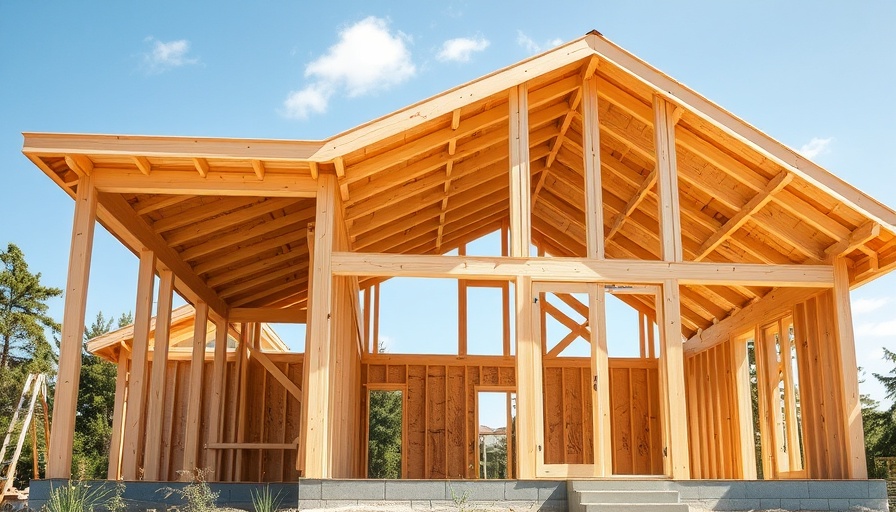
Unpacking QXO's Ambitious $5 Billion Bid for GMS
In a bold move that is turning heads in the construction sector, QXO has officially announced a $5 billion offer to acquire GMS, a significant player in the construction material distribution market. This potential acquisition aims to combine QXO's sustainable architecture philosophies with GMS's extensive logistics and supply chain capabilities, suggesting a focus not just on scale, but also on innovative, eco-friendly practices in the commercial construction space.
The Strategic Importance of GMS
GMS provides wholesale distribution of drywall, ceilings, and other construction materials, with a network that spans the entire United States. By acquiring GMS, QXO is not just eyeing an increase in market share, but also an opportunity to enhance its supply chain efficiency, particularly for projects that prioritize sustainable construction methods. As we advance towards greener practices, the access to versatile and eco-conscious building materials becomes increasingly crucial for developers and facility managers alike.
Market Reaction: What This Means for the Construction Industry
The proposal has many industry experts speculating on the potential ripple effects throughout the market. If successful, this acquisition could set a precedent for similar partnerships aimed at integrating sustainability with construction efficiency. As businesses continue to evolve in response to environmental challenges, the combination of QXO's innovative practices and GMS's distribution strength raises questions about future industry standards, particularly concerning green materials and environmentally-friendly construction practices.
Predictions for Sustainable Practices in Construction
As QXO and GMS potentially come together, there is an anticipation of new standards set within the industry for sustainable building. This shift aligns with broader trends that demonstrate increasing consumer demand for environmentally-conscious construction solutions. In particular, property developers and business owners are more frequently being guided by the principles of sustainability, seeking construction firms that embody these values. The market for green building materials is projected to grow significantly as light is shed on the environmental impact of traditional practices.
Actions for Business Owners and Developers
For business owners and facility managers, staying informed about this acquisition is key. Understanding the implications can provide insights into future projects that emphasize sustainable practices. Evaluating relationships with suppliers and an openness to innovations in construction materials are steps that can drive both business success and responsiveness to the growing ecological consciousness among consumers.
Conclusion: The Future of Construction is Green
As the construction industry gravitates towards more sustainable practices, QXO’s bid for GMS not only reflects this shift but also emphasizes the importance of strategic partnerships in scaling innovation in this vital sector. For decision-makers in construction, this acquisition could bring forth opportunities for collaboration with companies committed to environmental stewardship and sustainable development.
 Add Row
Add Row  Add
Add 




Write A Comment